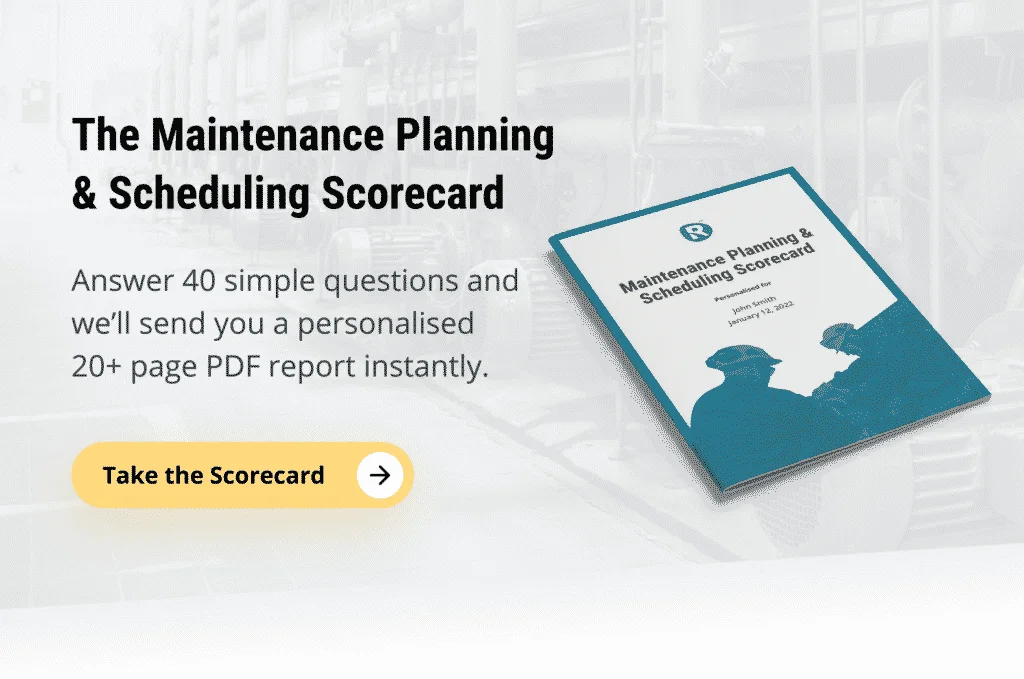Maintenance Planners deserve BETTER.
Maintenance Planners are the unsung heroes responsible for increasing your team’s productivity by at least 30%, translating to hundreds of thousands, if not millions, of dollars saved each and every year. Yet, despite the immense value they create, planners are often undervalued, and their role is misunderstood in many organizations.
In this article, we’ll dive into the three common ways organizations undervalue their planners, the consequences of doing so, and what you can do to change this.
Planners Are Seen as Admin Clerks
I’ve said this a million times and will keep on saying it— your planner should have experience as a technician. Someone who understands the work and can organize and plan it effectively. However, in many reactive organizations, planners are often used as admin personnel, bogged down with tasks like chasing missing parts, expediting suppliers and vendors, processing purchase requisitions, etc. Planners are so much more than that (and no they’re not relief supervisors either!)
When someone without technical experience fills the role of a planner, they can’t plan the work effectively or eliminate waste from unplanned or poorly planned work.
As a result, your team becomes inefficient in the use of resources and there will be increased downtime due to poor planning. This also results in lower team morale and increased frustration due to ineffective communication and organization
All this prevents your team from becoming productive and stops the planner from adding value to your organization. Remember, planners are game changers, and treating them as such will yield better results.
If you are stuck in a reactive environment and think you can’t afford to turn a technician into a planner, watch this video.
Good Planners Are Not Paid What They’re Worth
A good planner is experienced, knowledgeable, and possesses excellent organizational and interpersonal skills. They often know the plant, know the people, know the equipment, know where to find parts, have good relationships with suppliers, etc. They not only get stuff done but more importantly help your entire team to get a lot more done.
Unfortunately, most companies pay planners about the same as technicians, which devalues their role. To make matters worse, technicians often earn more due to overtime.
To retain and motivate your planners, remunerate them for the value they bring to the business. Offer competitive compensation packages above that of individual technicians.
If you don’t do this, it will be difficult to attract and retain top talent who can deliver the supposed value of the planner role. There will be decreased motivation and job satisfaction among planners, leading to reduced productivity and effectiveness. And there will be a ripple effect on the entire team’s performance and morale, as they feel the impact of undervaluing the planner’s role.

Planner Roles Are Seen as a Dead End Rather Than a Path to Progression
The role of a maintenance planner should be a logical progression from that of an individual technician. If a technician aspires to become a supervisor or superintendent, the path should include a stop as a planner.
But because planners are often seen as ‘admin’, people don’t see the true impact that the role brings to an organization. And when planners don’t get paid more than a technician, many technicians when asked to become a planner, will say:
“Why would I go become a planner, sit behind a desk in a boring admin, and earn less than I do now?”
That’s a tough sell.
And you need to fix that. Recognise your planners for the value they bring to your organisation. Renumerate them accordingly. Ensure they have a technical background. And train them in planning & scheduling.
Because if they don’t understand the planning & scheduling process and how it creates value then they will also struggle to succeed in their role.
To change this perception, position the role of a maintenance planner as a mandatory step for anyone looking to progress into a supervisory role. Make sure planners are recognized, rewarded, and given opportunities for growth.
If not, you will limit the career progression for technicians, leading to stagnation and decreased motivation. And there will be difficulty in attracting and retaining high-potential technicians who want to advance their careers.
Final Thoughts
It’s already 2023. It’s time to fix the undervaluation of maintenance planners. Recognize their essential role, remunerate them accordingly, ensure they have a technical background, and train them in planning and scheduling.
If your planners understand the planning and scheduling process and how it creates value, they will succeed in their role and, in turn, help your organization thrive.
Here are the key takeaways to ensure your organization truly values its maintenance planners:
- Treat planners as more than admin clerks by providing them with the necessary technical training and empowering them to make decisions
- Pay planners what they’re worth by offering competitive compensation packages that reflect their value to the organization
- Position the planner role as a crucial step in career progression, providing opportunities for growth and development
If you’re looking for resources to train your technicians in planning and scheduling, check out our online training course on implementing maintenance planning and scheduling. By investing in your planners, you are investing in the future success of your organisation.
